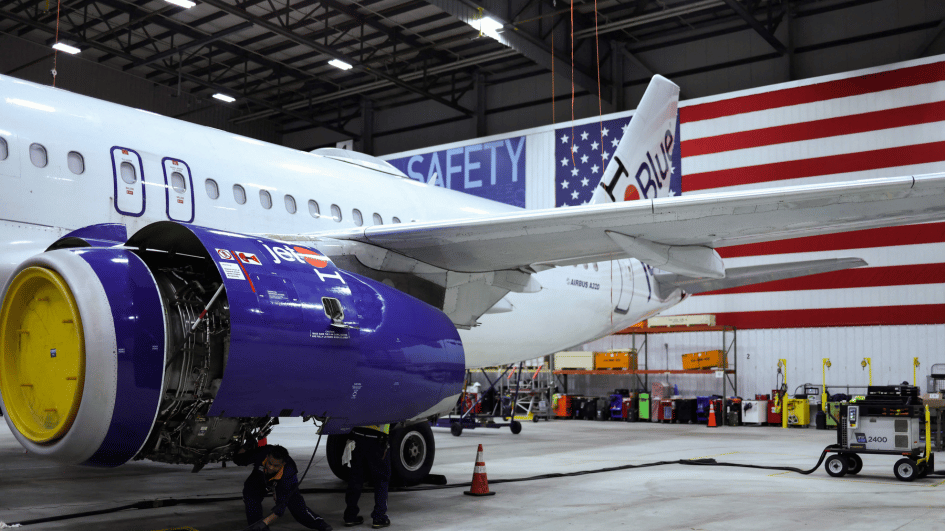Maintenance staff shortage could clip aviation industry's wings
NEW YORK

The United States is grappling with a shortage of maintenance workers in the aviation industry, with baby boomers retiring and others changing jobs during the pandemic.
This comes as the global fleet of commercial aircraft is set to balloon a third by 2034, involving more than 36,400 vessels, according to a recent study by consulting firm Oliver Wyman.
In its wake, spending in the maintenance, repair and overhaul market is projected to grow almost 20 percent by 2034.
But the sector suffers from a shortfall of qualified manpower and an inadequate pipeline of talent.
It lacks some 24,000 aviation maintenance technicians in North America, a figure due to reach nearly 40,000 by 2028, Oliver Wyman notes.
This gap is not one that the renowned Aviation High School in Long Island will be able to fill with its cohorts totaling 2,000 students.
"I don't think the Aviation High Schools have enough capacity to train enough people," said Steven Jackson, principal of the Aviation High School in Long Island City.
"We are one of the largest high schools and it would be hard to scale it up further," he added.
The school is one of 28 certified by the U.S. Federal Aviation Administration (FAA), and trains future aviation maintenance technicians who can either enter the workforce after high school or further their studies in universities.
"The job market is good and there is more money so, at the moment, more go straight to work than before," Jackson told AFP.
In the United States, around 4,000 maintenance, repair and overhaul companies employ some 185,000 aviation maintenance technicians and engineers. This forms around 44 percent of the global total, according to the Aeronautical Repair Station Association.
To boost the attractiveness of aviation maintenance, Congress passed legislation in 2018 enabling the FAA to provide ad hoc grants.
As a result, $13.5 million was awarded in March to 32 schools, 20 of which would especially help with training maintenance professionals.
"Because so many aviation jobs are critical to operations, any ongoing shortage can eventually result in the industry's growth being limited," Oliver Wyman noted in an earlier report.
In a 2023-2042 outlook, aviation giant Boeing forecasts "strong" long-term demand for newly qualified aviation personnel.
There is a need for some 690,000 new maintenance technicians to help maintain the global commercial fleet over the next 20 years, according to Boeing.
The two major aircraft manufacturers, Boeing and Airbus, are fully booked until almost the end of the decade, and are accumulating delays.
Meanwhile, airlines are stepping up orders as they seek to capitalize on strong demand from travelers and build fuel-efficient fleets.
According to experts, departures have led to the disruption of a transfer of know-how between experienced and new technicians.
















